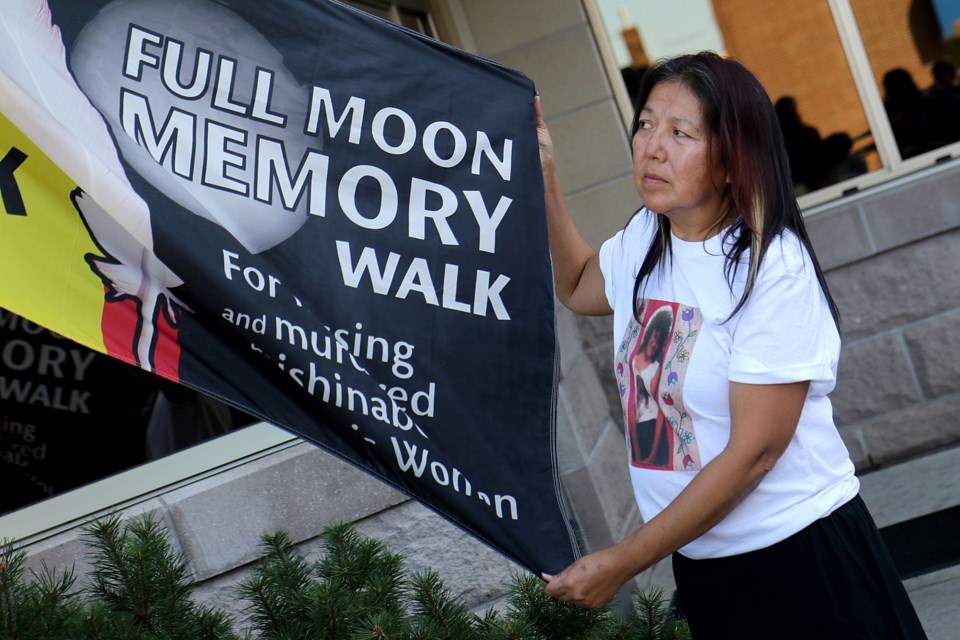THUNDER BAY – Sharon Johnson says she knows her late sister Sandra has been with her every step of the way for the past 27 years.
Johnson on Saturday led the Full Moon Memory Walk through the streets of Thunder Bay for the 15th time, honouring murdered and missing Indigenous women and girls, including her sister, whose body was found in 1992 on a frozen Thunder Bay river.
It’s important to keep the missing and murdered front and centre, said Johnson, explaining why she has kept the walk going more than a quarter of a century after her sister died.
“The message that we need to get out into the community is that we don’t want people to forget that we still have loved ones who are missing. We still have loved ones who are being murdered and we want to keep the spotlight on that, with the national report that came out in June,” Johnson said.
The 1,200-page report, produced after interviewing more than 2,000 people across the country, found that Indigenous women and girls are murdered or go missing at a rate 12 times more than women and girls from any other demographic.
They’re 16 times more likely to be killed than Caucasian women.
Johnson said she’s hopeful the message is finally starting to resonate with the powers that be.
“I guess from what I see, and my involvement with this work, I think there are more and more people that are noticing and doing something about it,” she said.
About 80 people took part in Saturday’s walk, including Thunder Bay Police Service Chief Sylvie Hauth.
Hauth, whose department has come under intense scrutiny for its treatment of Indigenous peoples, called it an honour and a privilege to take part in the walk.
“Each and every day Indigenous women deserve to be recognized as life givers, as nurturers and as leaders in our community. And that respect needs to be taught in all aspects of our lives. It needs to begin here, in our community and today’s walk is an opportunity for us to unite,” Hauth said.
Michelle Solomon, a councillor in Fort William First Nation who was also representing the Ontario Native Women’s Association on Saturday, said the horrid treatment of Indigenous women and girls has its roots in the colonial structures of Canada and laws such as the Indian Act.
“They have really placed our women in a devalued place. A lot of people don’t really understand how we got here and if you don’t understand how these things have impacted Indigenous women, how it has impacted the role that they play in their communities and their belonging in their communities, then it may be very difficult for you to understand how this became a huge issue,” Solomon said.
“Huge is not even a word that can begin to describe the number of Indigenous women who die at the hands of violence and who are taken from their families.”
Saturday’s walk began at city hall, following a flag-raising ceremony presided over by Mayor Bill Mauro.
He said the city is doing its best to make sure Indigenous women and girls – all of its residents in fact – can feel safe and secure in Thunder Bay.
He pointed to the city’s gifting of the former Grandview Lodge to Matawa First Nations for use as a new high school, as an example of the city moving to protect Indigenous peoples.
